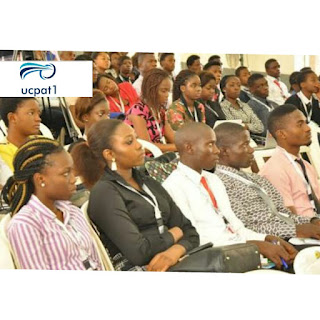Youths still restricted, regardless of “Not Too Young to Rule”
 |
| Nigeria Youths |
This vote is particularly important because the population dynamics are shifting globally; half of the global population is under 30, and yet 73% of countries (including Nigeria) restrict young people from running for office, despite being qualified to vote. To some extent, the senate has received an undeserved applause from Nigerians.
However, the passage of the bill is a technique employed by the senate to divert the attentions of Nigerians from other important pressing issues that requires the prompt attention of the legislatives, to make better the lives of the general public. The bill quite rightly succeeded in setting a minimum age; however it failed to set a maximum age eligible to contest.
In as much as civil servants have set an age when they must retire considering an expected decline in their service, health, and productivity, likewise political office holders must have a retirement age.
According to the CIA world fact book report in 2017, the total Nigeria population is estimated to be 186,053,386 people, out of which 112,000,000 live below poverty line, which is living on less than a dollar per day.
Ages 14-24 make up 19.48%, 0-54 makes up 92.92%, with unemployment rate at 14.20%. On March 30, the senate passed the Electoral Act No 6 2010 (Amendment) Bill 2017, and one of the things it will do is to abolish arbitrary fees for nomination forms fixed by political parties.
By 2019 general elections, prescribed limits for each elective office would be as follow: N150, 000 for a ward councillorship aspirant in the FCT; N250, 000 for an area council chairmanship aspirant in the FCT; N500, 000 for a house of assembly aspirant; N1, 000, 000 for a house of representatives aspirant; N2, 000, 000 for a senatorial aspirant; N5, 000, 000 for a governorship aspirant; and N10, 000, 000 for a presidential aspirant.
‘The Not Too Young to Run’ bill was proclaimed to be made for the youths. However, the irony of it is that majority of the youths are not fit to run because of the huge financial demands of running.
What chances does this guarantee an average Nigerian youth? Is the bill meant for the unemployed youths? How possible is it for a person under the current minimum wage structure of N18, 000 to afford a presidential or governorship form?
Are we still practicing democracy if there is no fair chance given to all? Should it always be about money or the quality of person? It is clear that political offices in Nigeria are meant for the elites, because in an estimated population of 186,053,386, an estimate of 112,000,000 are below the poverty line, and the total number of millionaires are estimated to be less than 20,000.
Hundreds of youths are perishing in the Sahara Desert and Mediterranean Sea in the process of migrating away from the hardship in the country; yet our law makers feel they have given a generational gift. Recently, the ministry of education acknowledged that Nigeria has more than half of the world’s population of out-of-school children.
The permanent secretary for the ministry of education Hussaini Adamu said that: it is sad that 10.5million Nigerian children are out of school. The consequence of this is that: the futures of the country are the children who are currently out of school.
What kind of country leaves her future out-of-school? How would the ‘out-of-school children’ be eligible to be political office holders in future if they are not educated?
Isn’t this another governmental strategy to keep the masses out of the decision-making process of the country in future by making their children vulnerable and uneducated?
The plans of the lawmakers by not setting a maximum age is to avail them the opportunity of eligibility even when they have become too old to function; and the high cost of running on the other end, is an elitist strategy to exclude the majority from governance. Nigerian youths must not be distracted by the false gestures our law makers.
They should advocate for a maximum age boundary, and most importantly, reduction in the cost of running that would be relative to the current minimum wage structure.
Dada resides in Lagos and can be reached on: dadabenjaminopeyemi@gmail.com





Post a Comment